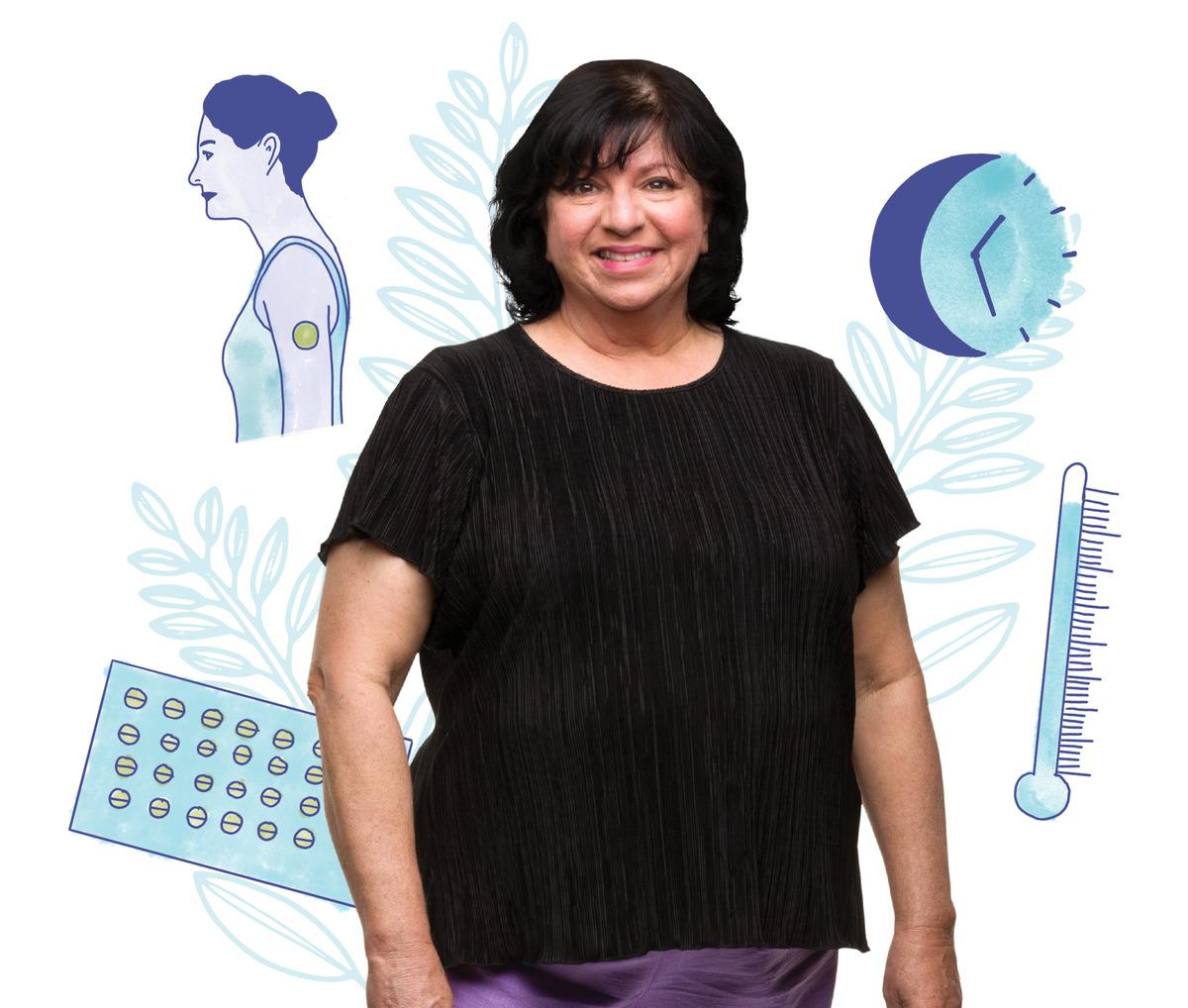
Menopause begins between the ages of 40 and 58, though the average age most women reach menopause is early fifties. Menopause is typically diagnosed once a woman has missed her regular period for twelve consecutive months[i]. During menopause the body stops producing estrogen in any significant quantity, resulting in symptoms such as hot flashes, difficulty with sleep, and bladder issues, many of which overlap with commonly occurring symptoms of MS. Some women report that symptoms of menopause can make MS symptoms feel worse. Most symptoms of menopause respond well to various medications, so it is recommended that women speak to their healthcare providers to discuss treatment options.
MS has not been found to impact the timing of menopause onset[ii] and there is no evidence that menopause has either a positive or negative effect on relapse rate or progression of MS. Two known factors for earlier onset menopause are genetics and smoking. Research suggests that women smoke reach menopause approximately two years earlier than those who do not smoke. Smoking has also been found to potentially accelerate MS progression.
Hormone Therapy
Hormone therapies (HT) are prescription medications women may take to manage symptoms related to menopause. HT may also be used to prevent osteoporosis. Women living with MS who have higher levels of disability and prolonged periods of immobility (sitting or lying) may have an increased risk of thrombosis or blood clots, so HT may not be suitable. Hormone therapy is also not recommended for women with a history of heavy smoking, thrombosis, certain cancers, or severe heart, liver or kidney disease.
Other strategies such as regular exercise, getting enough rest, eating a balanced diet, cooling strategies, quitting smoking, and limiting alcohol and caffeine will help with symptoms of menopause. All types of hormone therapy can be used by women with MS (pills, patches and gels). Women considering hormone therapy, or other therapies to manage menopause should consult their healthcare provider. Other helpful resources can be found on the North American Menopause Society website.
[i] North American Menopause Society
[ii] Caring for Women with Multiple Sclerosis Across the
Lifespan. Rankin, K & Bove, R. Current Neurology and
Neuroscience Reports (2018) 18: 36
| This information is made possible by SHOPPERS LOVE.YOU., committed to putting women’s health first. |
Additional Information
- North American Menopause Society
- Women's Health and Multiple Sclerosis - MS Society of Canada publication
- For help on finding more resources related to women's health and MS, please contact our MS Navigators at 1-844-859-6789
or msnavigators@mscanada.ca